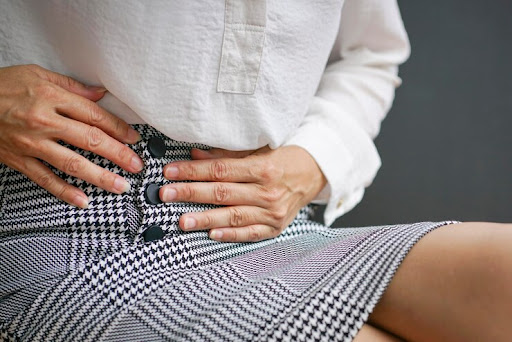
Urinary incontinence can take a toll on your quality of life. It's one of the most common medical conditions in women. It is caused by the pelvic floor muscles losing strength during childbirth or pregnancy, pelvic surgery, aging, weight gain, or other conditions. This blog explains how taking Pelvic Floor Physiotherapy (PF) from a certified Women's health physiotherapist can help women struggling with urinary incontinence.
Urinary incontinence (UI) is a problem with controlling urine flow. Both men and women may experience this. UI can range from mild to severe and affect any part of the urinary tract. The most common cause of UI is weakness in the muscles that control urination (the pelvic floor muscles). Other causes include disorders of the bladder, nerves, or kidneys.
UI can be troublesome and embarrassing. It can lead to problems with continence (bowel control), sleep, and overall quality of life. There are many ways to treat UI, including medications, surgery, physical therapy, and exercises.
Urinary incontinence is a common problem that can lead to embarrassment and social isolation. There are many different types of urinary incontinence, and each requires a unique treatment plan.
One type of urinary incontinence is urge incontinence, which occurs when people cannot hold on to their urine for long periods. Urge incontinence can be caused by problems with the nervous system or the bladder, and treatment typically involves medications and surgery. Other types of urinary incontinence include stress urinary incontinence (SUI), detrusor overactivity disorder (DOD), and mixed episodes (ME).
There are a few ways that physiotherapy can help treat urinary incontinence. One way is to help relearn how to contract the pelvic floor muscles. This can help improve bladder control and support. Physiotherapy may also help patients learn new exercises or techniques to improve bladder control. Finally, treatments such as behavioural therapy and physical therapy may also be used together to improve bladder control.
Physiotherapy is often recommended as a first-line treatment for all types of urinary incontinence. Physiotherapy can help to improve muscle function, mobility, and strength in the bladder and surrounding muscles. In addition, physiotherapy may help to improve relaxation techniques and communication between the brain and the body.
There are several reasons why you might want to consult an Incontinence Rehab physiotherapist for urinary incontinence. One reason is that many treatments for urinary incontinence involve exercises and mobilization that can improve overall strength and function in the pelvic muscles. Physiotherapy can help restore lost mobility and range of motion, improving the quality of life for those with this condition.
Another benefit of consulting an Incontinence Rehab physiotherapist is that they can help you troubleshoot specific problems with your urinary system. This may include identifying any issues with your nervous system or bladder neck causing your incontinence. By addressing these underlying issues, you can resolve your incontinence permanently.
If you are experiencing urinary incontinence, consulting with a women's health physiotherapist like Dr Leena may be your best step. She is a Diastasis Recti Rehab and a Women's health physiotherapist who can help you identify the underlying cause of your incontinence and recommend specific exercises or treatments to improve your condition.
She may also be able to suggest other ways to manage your stress levels, such as relaxation techniques or mind-body therapies. Sometimes, she might prescribe medications or devices to help improve your bladder control.
If you are interested in consulting with a women's health physiotherapist, please speak with Dr Leena, a Certified Incontinence Rehab Physiotherapist. And physiotherapy is an excellent way to help improve your overall health, but it should not be used in lieu of medical advice from your doctor.
